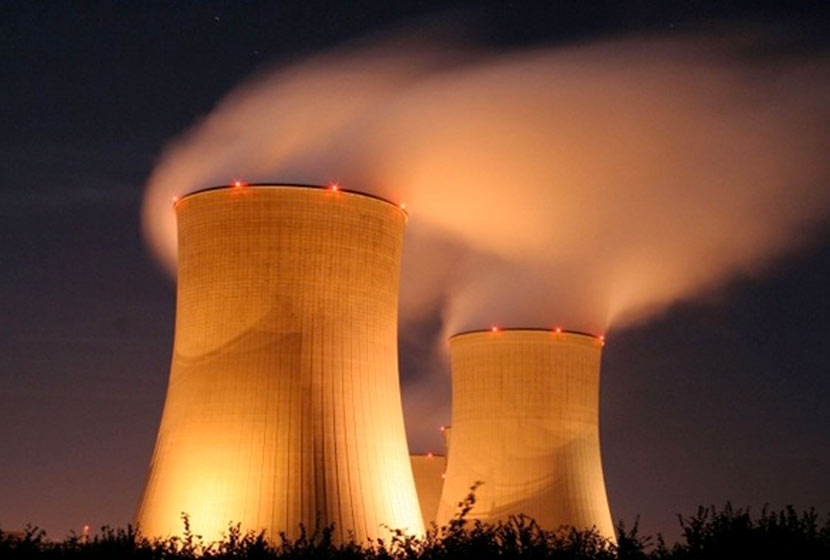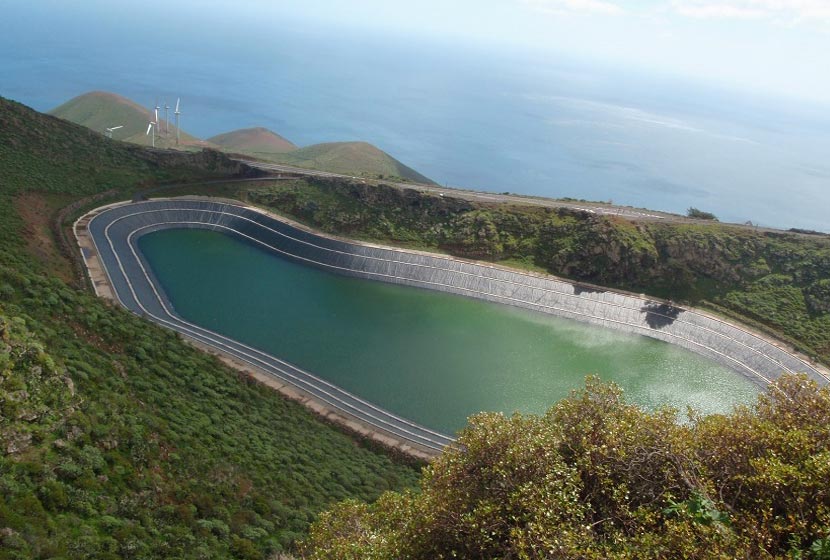The energy transition has been at the heart of the public debate since the presentation of the programming bill to the Council of Ministers on 18 June 2014. It is a vague concept, whose objectives oscillate between the struggle against global warming, the reduction of fossil fuels and the questioning the use of nuclear energy.
As a good pupil in terms of greenhouse gas emissions, France must pursue a clear strategy: to reduce CO2 emissions while maintaining its competitive advantage, with electricity prices among the lowest in the OECD and half the price of electricity for private individuals than in Germany.
For the experts of the Concorde Foundation, the energy transition must be based primarily on nuclear power; hydroelectricity and onshore wind power complete the picture.
The undeniable superiority of nuclear power in economic and health terms should make it the most important source of production in the national energy mix. It is the only energy with no impact in terms of CO2 emissions and air pollution, with a competitive cost that makes it possible to ensure a rate of economic growth sufficient to meet the needs of a rapidly growing world population.
France is the Western country most involved in the energy transition. It has the most competitive electricity costs in Europe according to the OECD, despite the taxes affected, thanks to its nuclear/R&D mix. We must not squander this achievement by embarking on a German-style turnaround to give up all or part of its nuclear power. Such a policy would paradoxically increase our C02 emissions, worsen the competitiveness of our companies and the standard of living of the French people. On the contrary, it must maintain and develop this legacy.
The Concorde Foundation wishes to show the way for a clean and prosperous energy transition, concerned with supporting both economic development and the health of citizens.
The French nuclear programme is the archetype of a mature public policy and benefits from a privileged situation that protects us from future energy tensions. We cannot squander this acquis by committing ourselves, which would degrade the competitiveness of our companies and the standard of living of the French people. The price of electricity is already set to rise by 50% by 2020, two-thirds of which is due to the additional cost of renewable energy; if we were to adopt the German model, we would have to double the French electricity bill.
The energy rate of return (EROI) is a concept that relates the energy produced to the energy used to produce that energy. It tells us that the efficiency of hydrocarbon production has fallen due to the increasing difficulty of access to the resource, and that the only energies with sufficient efficiency are: hydroelectricity, coal, nuclear and wind power.
As the use of coal is contradictory with the objectives of reducing greenhouse gas emissions, hydropower and nuclear energy supplemented by wind power appear to be an essential means of ensuring the development of our societies.
Nuclear production, an inexhaustible resource
In view of the uranium reserves and the value we could derive from them thanks to fast neutron reactors (fourth generation), nuclear energy is the only energy capable of providing our societies with energy resources.
abundant.
Nuclear power generation, an energy source free of C02 emissions
While electricity production is an important part of the energy transition, a comparison between the different sources of electricity is necessary: a 1,000 MW nuclear reactor produces 30 tonnes of waste annually, which is then used to generate electricity.
are sorted, treated, recycled and stored, while a coal-fired power plant of the same capacity simultaneously releases nearly 300,000 tonnes of ash, including 400 tonnes of toxic heavy metals, arsenic, mercury and cadmium.
For an efficient and profitable energy transition
Despite the taxes affected, France's electricity costs are well below the OECD average, thanks to our nuclear/R&D mix.
The French nuclear programme is the archetypal example of a mature public policy and benefits from a privileged situation that protects it from future energy tensions. We cannot squander this acquis by embarking on a German-style turnaround by forcibly substituting renewable energies for nuclear power, which would degrade the competitiveness of our companies and the standard of living of the French people. The price of electricity is already set to rise by 50% by 2020, two-thirds of which is due to the additional cost of renewable energy; if we were to adopt the German model, we would have to double the French electricity bill.
Lessons to be learned from Europe's botched energy transitions
It can be seen that the installed capacities in RE for Germany and in nuclear for France are similar (approximately 60 000MW of installed capacity); however, German RE production accounts for 13% of its total electricity production (i.e. 75 TWh) while the same installed capacity in the form of nuclear in France produces 74% of electricity production (i.e. 410 TWh). This difference in production (five times less in Germany) is explained by the intermittent nature of the NREs.
In Spain, the huge investment project in photovoltaic launched by the government in 2007 was advantageous, that when, in February 2014, the State decided to reduce subsidies, the sector collapsed and thousands of private investors were ruined.
For a nuclear-based electricity mix
Energy policy must be based on existing nuclear power, which gives us a competitive advantage; it is therefore essential to extend the existence of French nuclear power stations and to maintain Fessenheim.
It would now be more appropriate to talk about decarbonised energy - of which nuclear energy is a part - instead of renewable energy, including when setting European targets.
France must nevertheless pursue a strategy to reduce fossil fuels: this involves developing electric vehicles.
An ambitious research policy must set itself the following objectives:
- Electricity storage,
- Increasing the energy return rate of photovoltaics,
- progress in the hydrogen sector and development of CO2 hydrogenation.
Finally, energy mixes must be decided at national level: defending the principle of subsidiarity will enable each European state to decide on the composition of its energy mix and avoid the serious collective errors of
consequences.












